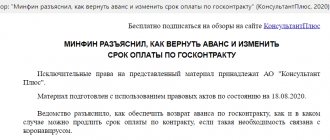Registration and temporary registration are legalized procedures that allow citizens to live and work in any city in Russia. But the owners are afraid to register even their relatives for their square meters and have no idea how to register someone for a certain period without the right to an apartment. Therefore, the practice of concluding contracts that clearly define the living conditions, terms and procedure for terminating the agreement has become widespread.
How many people can be registered in the room? This depends on the area (must be at least 10 m2 per person), regional requirements and type of property ownership.
Why do you need permanent registration without the right to living space?
The Law of the Russian Federation No. 5242-1 of June 25, 1993 states that Russians freely choose a locality for their location. Decree of the Government of the Russian Federation dated July 17, 1995 No. 713 determines the procedure for registration at the place of residence and stay.
These legislative acts define 2 types of registration:
- main;
- temporary.
The concept of “registration without the right of residence” does not exist. By registering, a citizen informs the authorities about his location and does not receive any property rights, unlike registration.
Permanent registration without transfer of ownership is suitable for those who need territorial affiliation for employment. Often the owner, wanting to protect his apartment from potential attacks, refuses to register it indefinitely.
Types of registration
Registration without the right to living space can be urgent or indefinite . The temporary form does not imply the ability to dispose of property or receive a share of the total area. At the same time, the person is in the apartment absolutely legally. Currently, this option is the safest for the home owner, since no one claims the property, and at the end of the registration period the citizen will simply move out.
Permanent registration in an apartment without the right to living space is created differently than temporary registration, and ends either with the consent of the resident, who voluntarily checks out, or by court decision.
Important ! A permanently registered person has the right to register his children under the age of 18 for the same living space without obtaining permission from the owner.
Subsequently, it can be difficult to discharge children, as regulatory approval is required. Their representatives carefully study where the child will live next and whether conditions there will worsen.
Registration
If there is only one owner, he can register whoever he wants. When there are several owners, everyone's consent will be required. Registration in a privatized apartment without property rights is completed at the multifunctional center (MFC) with the provision of the necessary documents within 3 working days. To do this you should:
- draw up a package of papers about being discharged from your previous place of residence;
- obtain the owner's consent for registration.
The MFC provides the following documents:
- original application;
- passports of the applicant, owner and everyone registered at the specified address;
- papers confirming ownership;
- documents confirming deregistration at the previous address;
- military ID of the person being prescribed.
How to register in an apartment without ownership rights
A registration agreement without property privileges is created when a person needs a job, and without registration they will not hire him anywhere. The need also arises when registering children in an educational institution in order to receive social benefits.
The contract with all the nuances is signed before the documents are submitted for registration. There are no specific requirements for the paper, but it must be certified by a notary.
In order not to rack your brains over how to temporarily register a person in an apartment without ownership rights, you can use a standard rental agreement (*.docx). Add the necessary points there or use a sample agreement (*.docx) for the use of residential premises with registration.
The document must contain:
- date and place of imprisonment;
- data of all parties to the agreement;
- full address of future residence;
- a description of the registration process and the reasons why the owner has the right to demand deregistration without going to court;
- living conditions of children;
- signatures of the parties.
To register in municipal housing, permission from the city authorities and written approval of all family members living in the apartment are required.
Official housing does not become property, and it is impossible to register anyone there without the permission of the organization that provided the premises.
Risks for the owner
When performing the procedure, pay attention to the following:
- What is the relationship between the owner and the person he registers ? For example, after a divorce, the spouse registered in the apartment can be discharged only with his voluntary consent or through the court.
- Are there any children under 18 years of age? Both with temporary and permanent registration, the resident has the right to register a child in the living space without the consent of the owner. They will have to wait until they reach the age of majority or the registered citizens decide to change their place of residence.
- Is the woman expecting the birth of a child? In this case, the future newborn can also be registered in the owner’s apartment.
Taking these factors into account reduces the risk of claims against real estate by the person being prescribed. Registration of a person without dependents, with whom there are no family ties, does not create a threat to the homeowner, since the law in such circumstances will be on his side.
Obtaining property rights is possible only in accordance with the procedure established by law (when donating property, will, inheritance, etc.). In municipal or public housing, everyone registered can become co-owners of the property as a result of privatization. The main condition is the absence of privatization of something earlier.
Why do you need a free use agreement?
An acquaintance, a brother, a matchmaker, a non-relative, a stranger, or anyone else, approached the owner of the property with a request: “Register me in your apartment, it’s really necessary.” The owner reluctantly agreed to issue a registration, in which case a citizen can be discharged only through the court, and they came to the passport office (MFC). They brought passports, documents on property rights, and the passport officer asked: “On what basis will you apply for permanent registration at your place of residence?” And this question can amaze anyone. So what kind of reasons can there be and which one to choose?
First of all, let's start with what property rights are. This right consists of three equal rights:
- The right of ownership is mastery over a thing.
- The right to dispose, everything is clear and so.
- The right to use is the extraction of useful properties from a thing. Living in a dwelling is the right to use the dwelling. Is it possible to transfer the right to use a home to another person other than the owner? Yes, you can.
Registration at the place of residence, according to popular registration, is an administrative procedure confirming the permanent residence of a citizen in a specific dwelling (apartment, room, private house, etc.).
As we just found out, living is the use of housing. And, of course, when registering a non-owner of residential premises in a private home, a representative of a government authority asks the question: “How was the right to use the housing obtained?” At the time of writing this article, there are only three options for transferring the right to use private residential premises:
1. Oral agreement between the property owner and the user.
This oral agreement is reflected in the statement of the owner of the property, upon permanent registration of the citizen, that he provides housing for the registered person to live in. From a legal point of view, this is not a very correct option, since no written contracts or agreements are drawn up between the owner and the user.
2. Commercial lease agreement.
The agreement implies a paid transfer of residential premises from the owner to the user (tenant) for money, with all the ensuing tax obligations.
3. Agreement for free use.
An agreement under which the owner of the property transfers the residential premises to the user free of charge, that is, without profit or, more simply put, for free. We will talk about it in more detail.
What to choose as a basis is up to the homeowner to decide.
For those who register, the basis for registration does not play any role. We recommend choosing a contract for the free use of residential premises as a basis. First of all, because this agreement is a written set of rights and obligations of both the homeowner and the user (tenant). The second and no less important circumstance is that if you do not take money for the registered person’s accommodation, then this should be reflected in the contract itself. It is impossible to conclude a commercial lease agreement free of charge. Even if it is a small amount, under a social tenancy agreement the employer must pay it to the owner, and this always has tax consequences.
The contract for gratuitous use is concluded in a simple written form and does not require mandatory notarization. If, on the basis of this agreement, permanent registration of a citizen will be issued, then the agreement must be of unlimited duration. Why? If the contract is fixed-term, then temporary registration will be issued, at the place of stay, for the duration of the contract. Temporary registration at the place of stay is fundamentally different from permanent registration at the place of residence.
It is also necessary to pay special attention to the negative consequences of permanent registration at a citizen’s place of residence for the homeowner. Some time has passed since the citizen’s registration, the owner’s plans have changed, but anything could have happened, the owner wanted to sell the apartment, had a fight with the person registered, etc. etc., but the person registered did not want to check out of the apartment on his own. What to do? Go to court. Only a court can remove a permanently registered citizen from permanent registration against his will. This is where the fun begins. If you registered a citizen based on an application, you will have to prove with testimony all of your oral agreements. If the citizen continues to live in the home, then the court will have to prove the impossibility of living together. In general, the matter is long and tedious.
But in a gratuitous use agreement you can always refer to Art. 699 of the Civil Code of the Russian Federation - unilateral refusal to fulfill a contract for gratuitous use. By default, the refusal period is set to one month. The user was notified in writing one month in advance, unless a different period was established by the contract, and he has no grounds for further use of the home. Yes, there will be a trial ahead to recognize the user as having terminated the right to use and remove him from permanent registration, but the trial itself will be much easier.
Civil Code of the Russian Federation Article 699. Refusal of the agreement for free use
1. Each of the parties has the right at any time to cancel a contract for gratuitous use concluded without specifying a period by notifying the other party one month in advance, unless the contract provides for a different notice period.
2. Unless otherwise provided by the agreement, the borrower has the right at any time to refuse the agreement concluded with an indication of the term, in the manner provided for in paragraph 1 of this article.
All of the above is not theoretical speculation, but, alas, life practice, due to the fact that one of the directions of our legal agency Moscow-v.com is deregistration of citizens at their place of residence, or, more simply put, deregistration through the court.
Therefore, we recommend that when registering a citizen, they draw up a free use agreement. A sample is shown below.
Well, a small life hack for those who read the article to the end. To avoid notifications to the user in case of unilateral refusal of the free use agreement, you can also immediately sign an additional agreement to terminate this agreement a year in advance or with an open date. This is done so that after a year, if a citizen leaves for a new place of residence and refuses to leave the apartment, the owner has the opportunity to quickly discharge him through the court. There is an agreement, there is its written termination, that is, the tenant, by his own consent, terminated his right to use the residential premises. There are no longer any grounds for a tenant to register in the owner’s apartment.
- We will help you draw up a free use agreement.
- Rent an apartment.
- Discharge a person through the court.





